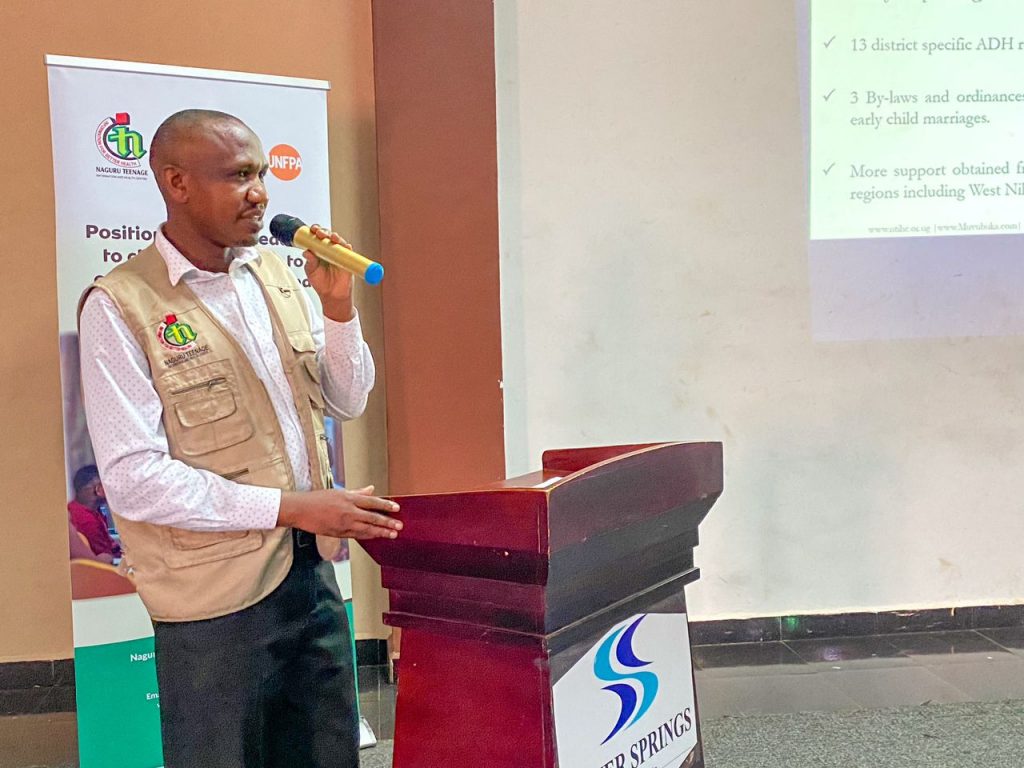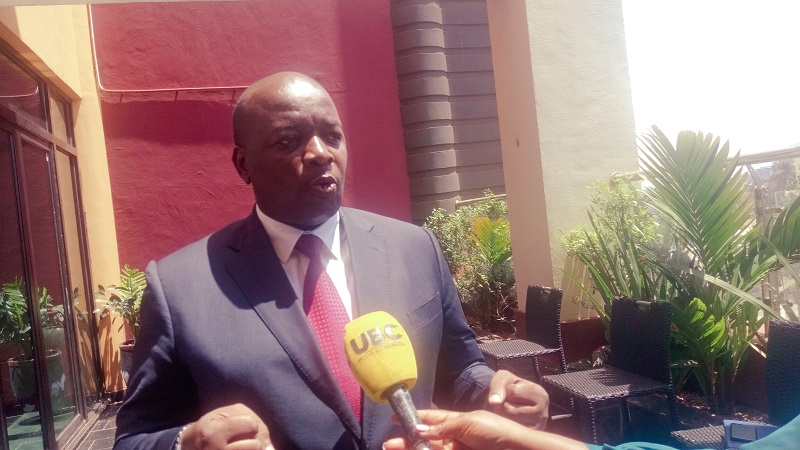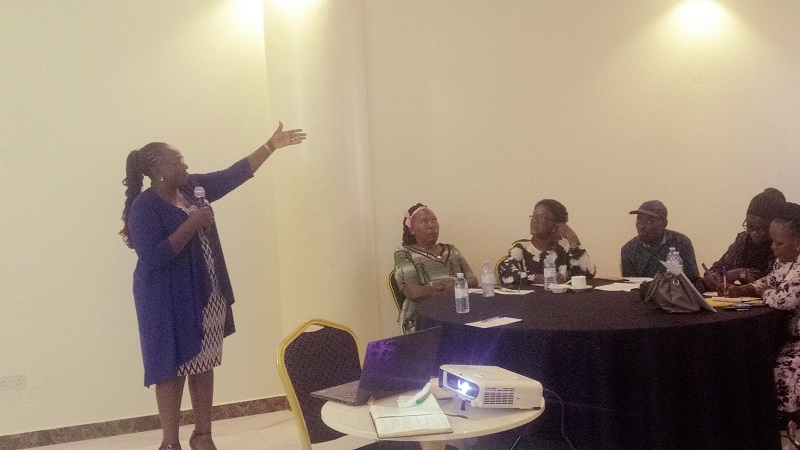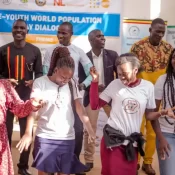- Home
- Post Single Template
Naguru Teenage Center taps Buganda cultural leaders to mitigate teenage pregnancy, child marriages
KAMPALA – Naguru Teenage Information and Health Centre (NTIHC) in collaboration with the Ministries of Gender and Health has moved to leverage cultural institutions in order to prevent gender-based violence and end teenage pregnancies and child marriages.
During the Tuesday dialogue with the Buganda kingdom cultural leaders that intended to share experiences and possible solutions regarding sexual reproductive health, gender-based violence gaps and challenges faced by young people, NTIHC indicated that cultural leaders play a pivotal role in protecting the values of society.
Mr. Asiimwe Sam – Head of Programs at the Center said that the involvement of cultural leaders is of paramount importance in reaching more young people including those who are out of mainstream education.
He noted that they are among the most influential groups of leaders and are a perfect vessel to relay the message to the public, who – if they inform and raise awareness on SGBV practices, a reduction in ending child marriages and teenage pregnancy could be realized.
“So, we are looking at skilling the young people to be productive adults but also helping them to navigate challenges of sexual representative health including teenage pregnancies, child marriages, HIV transmission, drug abuse among others.”
“Working with cultural institutions is paramount because they have opportunities to nurture young people through their programs. We have a partnership with them [Buganda] in their program “Muvubaka Agunjuse” at Kisenyi Health Center where we have for over ten years been supporting a youth-friendly center which is one among so many youth centers (about 32) that we support in Buganda,” he added.
He underscored the essence of the centers through which young people freely acquire information on sexual reproductive health, counseling and health services.

Mr. Asiimwe says it’s high time they broadened their reach to young people through cultural institutions but also built sustainability for these centers since their funding as an NGO is short-term.
“So, we are looking at working with these institutions so that they can scale up our work.”
According to him, girls are most vulnerable because of some cultural practices where a ratio of five girls to one boy aged 15 to 24 acquire HIV and one in four girls get pregnant before the age of 19.
“It is worse in Buganda because of dynamics of urbanization, overcrowding, influence of media, drug abuse, all these vices diminishing opportunities that young people could explore for their own economic benefits.”
Mr. Kawuma Male Henry, Sub County Chief, Kampala Central, Buganda Kingdom said that the Kingdom is much more concerned about youths – the future holders.
“It is one of the Kingdom’s policies to make sure that people are healthy.”

He attributed the increased early pregnancies and child marriages to the idleness of the school dropouts who are in turn exploited for money and taken advantage of.
He is, however, optimistic that with such engagements, they shall ensure that these go to institutions where they can acquire some skills and get some money.
“We have got working committees on all administration levels of the Kingdom through which we shall bring these young people and engage them in productive work.”
He also emphasized visiting schools and speaking to the pupils and students, especially on HIV awareness and encouraging them to stay in school for a better future.
Mr. Kawuma encouraged the youths to participate in agriculture because it is a very rich field and also to engage in sports.
Ms. Lydia Najjemba Wasula from the Ministry of Gender, Labour and Social Development attributed child marriages and teenage pregnancies in Uganda to the lack of the right information and guidance on SRH.
Also, she says there is a challenge of poverty among households, low levels of education of parents, but also alcoholic parents.
She also blamed society’s sociocultural norms, perceptions and attitudes and media through which young people access bad content that influences them.

Ms. Najjemba says there is a need to promote an enabling environment and influence changes in dominant thinking in regard to social and cultural norms that cause, drive and perpetuate the practice of child marriage and teenage pregnancies in society.
She also called for developing and strengthening institutional community and family systems but also improving the legal and policy environment for the prevention of child marriages and teenage pregnancies.
The ministry also cited the need for increased access to Primary and Secondary-level education for all children by establishing new schools and expanded coverage of health services by establishing new Health Centers.
The ministry also rooted for the implemented media campaigns to end child marriage, teenage pregnancy and child marriage at National and Community levels, continued engagements with cultural, religious and district local leaders to support child mothers back to school and promote positive parenting practices.
Recent Posts
+256800311222
TOLLFREE





